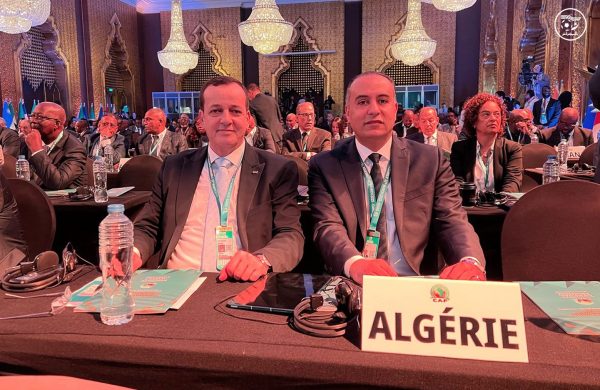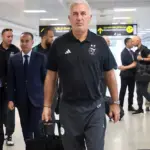Algeria’s Walid Sadi attends first CAF Executive meeting following election

Walid Sadi, the newly elected president of the Algerian Football Federation (FAF), is participating in his first Confederation of African Football (CAF) Executive Committee meeting this Saturday in Accra, Ghana.
Sadi secured his position on CAF’s Executive Committee last month during the 14th Extraordinary General Assembly held in Cairo, Egypt.
Standing unopposed for the seat representing North Africa after the withdrawal of Tunisia’s Hussein Jenayeh, Sadi was elected by acclamation, marking Algeria’s return to the Executive Committee after an eight-year absence.
This weekend’s meeting, convened alongside the 2025 African Schools Championship, carries significant importance as CAF looks to chart a clear course for the development of football across the continent.
Key decisions are expected to be made, particularly those aimed at strengthening football structures and initiatives at both grassroots and elite levels.
One of the major items on the agenda will be the election of new CAF vice-presidents. In line with the CAF statutes, the selection of vice-presidents is a critical governance process, with those elected playing pivotal roles in shaping the future of African football.
Their duties extend well beyond ceremonial functions, impacting areas such as youth development, competition structures, and continental partnerships.
The meeting is being chaired by Patrice Motsepe of South Africa, who was recently re-elected by CAF’s 54 member associations for another four-year term.
Under Motsepe’s leadership, the Confederation has emphasized growth, transparency, and improved competitiveness, themes that are expected to dominate discussions in Accra.
Beyond governance issues, the Executive Committee is also expected to focus on a wide range of topics crucial to African football’s progress.
Development programs aimed at nurturing young talent, improving infrastructure, and enhancing the overall standards of competitions across all age groups will feature prominently in the talks.
CAF’s commitment to promoting football excellence across Africa will also be highlighted. Initiatives designed to empower member associations, expand training programs, and provide greater access to resources will be reviewed and potentially expanded.
The confederation’s strategic vision includes fostering stronger domestic leagues, increasing African representation at global tournaments, and ensuring that African football continues to grow sustainably.
Sadi’s participation comes at a time when Algeria seeks to reinforce its influence within African football’s governing bodies.
His election not only reflects renewed confidence in Algeria’s leadership but also symbolizes a broader ambition to play an active role in shaping the future direction of football on the continent.
The Accra meeting is poised to set important benchmarks for CAF’s operations in the coming years, with an emphasis on accountability, innovation, and inclusive growth.
With leaders like Sadi now part of the executive decision-making table, the path forward for African football appears set for a new chapter of renewal and ambition.




